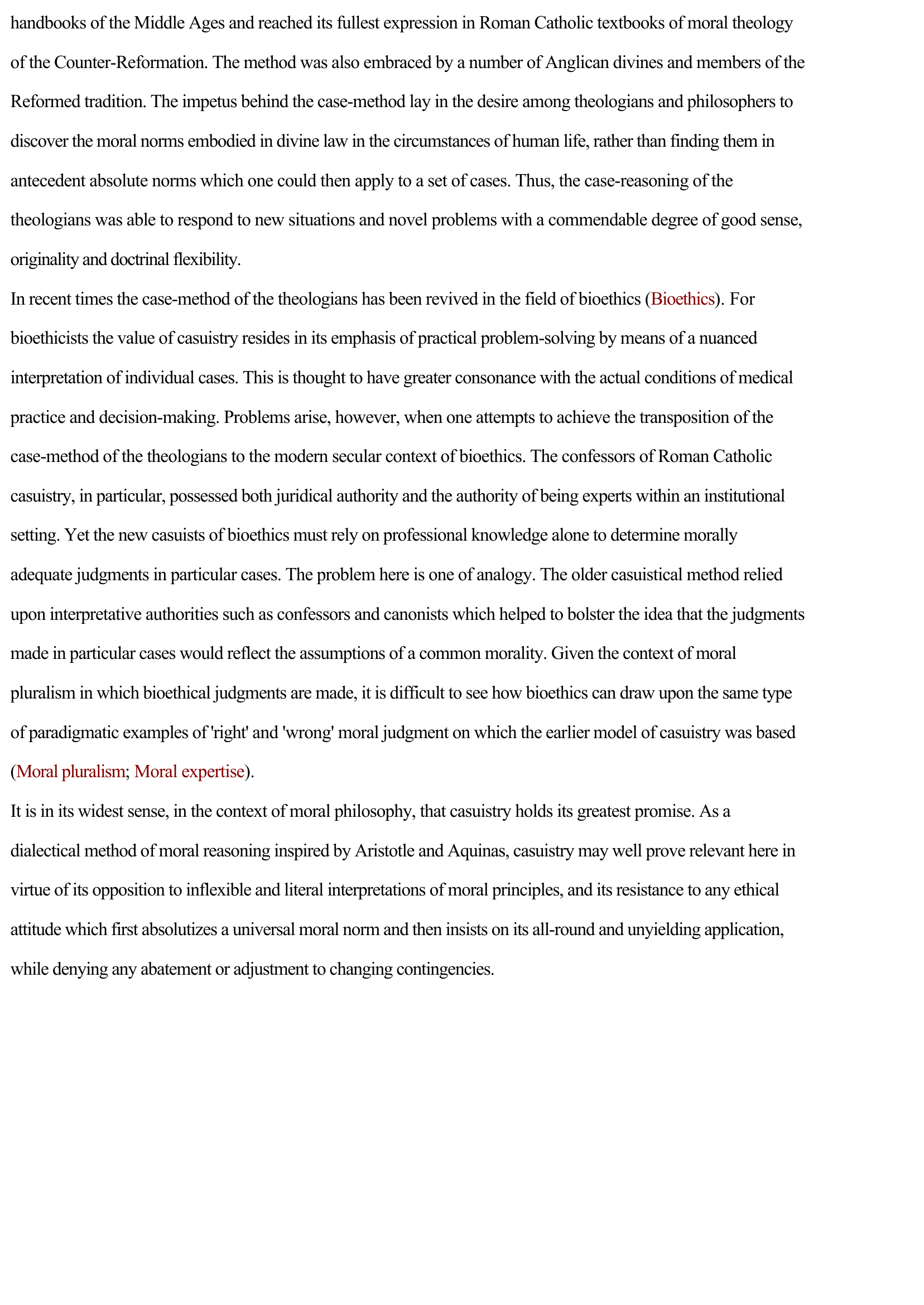Casuistry
Publié le 22/02/2012
Extrait du document
«
handbooks of the Middle Ages and reached its fullest expression in Roman Catholic textbooks of moral theology
of the Counter-Reformation.
The method was also embraced by a number of Anglican divines and members of the
Reformed tradition.
The impetus behind the case-method lay in the desire among theologians and philosophers to
discover the moral norms embodied in divine law in the circumstances of human life, rather than finding them in
antecedent absolute norms which one could then apply to a set of cases.
Thus, the case-reasoning of the
theologians was able to respond to new situations and novel problems with a commendable degree of good sense,
originality and doctrinal flexibility.
In recent times the case-method of the theologians has been revived in the field of bioethics ( Bioethics ).
For
bioethicists the value of casuistry resides in its emphasis of practical problem-solving by means of a nuanced
interpretation of individual cases.
This is thought to have greater consonance with the actual conditions of medical
practice and decision-making.
Problems arise, however, when one attempts to achieve the transposition of the
case-method of the theologians to the modern secular context of bioethics.
The confessors of Roman Catholic
casuistry, in particular, possessed both juridical authority and the authority of being experts within an institutional
setting.
Yet the new casuists of bioethics must rely on professional knowledge alone to determine morally
adequate judgments in particular cases.
The problem here is one of analogy.
The older casuistical method relied
upon interpretative authorities such as confessors and canonists which helped to bolster the idea that the judgments
made in particular cases would reflect the assumptions of a common morality.
Given the context of moral
pluralism in which bioethical judgments are made, it is difficult to see how bioethics can draw upon the same type
of paradigmatic examples of 'right' and 'wrong' moral judgment on which the earlier model of casuistry was based
(Moral pluralism ; Moral expertise ).
It is in its widest sense, in the context of moral philosophy, that casuistry holds its greatest promise.
As a
dialectical method of moral reasoning inspired by Aristotle and Aquinas, casuistry may well prove relevant here in
virtue of its opposition to inflexible and literal interpretations of moral principles, and its resistance to any ethical
attitude which first absolutizes a universal moral norm and then insists on its all-round and unyielding application,
while denying any abatement or adjustment to changing contingencies..
»
↓↓↓ APERÇU DU DOCUMENT ↓↓↓

































